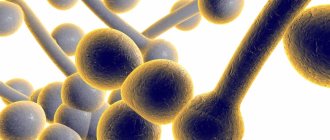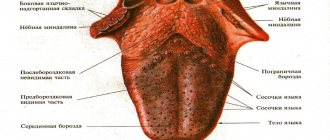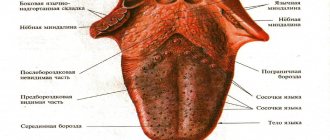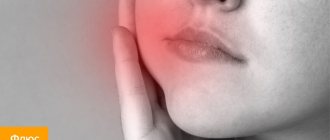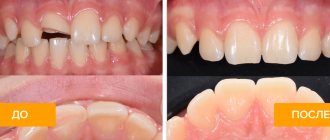Causes of bitterness in the mouth after eating
The unpleasant taste usually disappears when the cause that caused it is eliminated. Diet errors (fatty, deep-fried foods), smoking, bad teeth, poor oral hygiene, and taking certain medications are potential causes of bad taste. However, dryness and bitterness in the mouth are also symptoms of gastrointestinal diseases. Biliary dyskinesia, chronic cholecystitis, cholelithiasis cause discomfort in the oral cavity. Also, the cause of a bitter taste can be diseases of the duodenum, chronic gastritis, enteritis, and colitis.
How to remove severe bitterness in the mouth and nausea? It is necessary to treat the underlying disease, the manifestations of which are these symptoms. But even after cholecystectomy, unpleasant symptoms may persist. Bitterness in the mouth after gallbladder removal is often associated with the so-called postcholecystectomy syndrome. If, despite following a diet, a bitter taste in the mouth persists for a long time after surgery, you should consult a doctor to identify the cause and prescribe appropriate therapy. The cause of bitterness in the mouth after eating can be simple overeating. In case of a large feast, you can take a tablet of an enzyme preparation (panzinorm, festal, mezim forte) during meals. But it is still advisable to adhere to the rules of a healthy diet: eat small portions 5-6 times a day, eliminate or limit the consumption of fatty and fried foods, drink more water. Then the question “how to treat bitterness in the mouth while eating” will not arise, and “bells” from the liver in the form of an unpleasant taste will not come.
Where does the bitter taste come from?
An unpleasant taste may be present constantly or appear periodically. This symptom is associated with the release of bile into the esophagus. Patients often notice a bitter taste in the mouth in the morning, especially when eating fatty foods the day before and after sleeping on the left side.
Bile is a liver secretion that is involved in digestion. The fluid flows through the ducts into the gallbladder and from there into the duodenum. Normally, bile does not flow into the esophagus, and the person feels well.
After eating certain types of food, the liver may react by producing more secretions. The volume of bile in the intestines increases, and a small part enters the esophagus, causing a bitter taste in the mouth. The same reaction occurs when using certain medications or when exposed to other factors. In any case, an unpleasant taste is a reason to consult a doctor. Only by identifying the cause of bitterness in the mouth can a person’s well-being be improved.
What to do if you have a bitter taste in your mouth and a white coating on your tongue
Some medications cause a bitter taste. These include lithium preparations, antidepressants, antibiotics, allopurinol, vitamin and mineral complexes. Bitterness in the mouth can be combined with nausea, dryness, and a white coating on the tongue. Usually, special treatment for bitterness in the mouth after taking antibiotics or other medications is not required. The unpleasant taste disappears upon completion of the course of treatment and no longer bothers you.
What should you do if you have a bitter taste in your mouth and a white coating on your tongue that persists for a long time after taking medications? Contact your doctor. It may be necessary to prescribe hepatoprotectors - drugs that restore liver function. The treatment regimen for some diseases initially includes medications that “protect” the liver. This approach is practiced when prescribing chemotherapy drugs, especially with long courses and high dosages.
Diagnostics
In order to determine the cause of sour taste in men , it is necessary to undergo a comprehensive examination, which will exclude or confirm certain diseases. Comprehensive diagnostics includes the following activities:
- esophagogastroduodenoscopy (most informative for diagnosing gastric ulcers ;
- gastric pH-metry;
- ultrasound examination of the abdominal organs, including the liver and gallbladder;
- ultrasound examination of the pancreas;
- biochemical blood test, including liver tests and assessment of pancreatic enzyme levels;
- general clinical blood test;
- assessing blood glucose levels;
- consultation with a neurologist, endocrinologist, gastroenterologist, hepatologist;
- analysis for glycosylated hemoglobin.
Other causes of bitterness in the mouth
Why there is a constant bitter taste in the mouth - possible reasons:
- smoking;
- inhalation of vapors of certain chemicals;
- dehydration;
- glossitis;
- dry mouth;
- allergy;
- salivary gland infections;
- lack of zinc and vitamin B12;
- nasal polyps;
- autoimmune diseases such as Sjögren's syndrome and Bell's palsy;
- mouth breathing;
- inflammatory diseases of the upper respiratory tract;
- injuries to the head, mouth, nose;
- braces;
- Radiation therapy to the neck or head.
Bitterness in the mouth in the early stages of pregnancy may be associated with changes in hormonal levels, attacks of nausea and vomiting (toxicosis). Read more about this symptom on our website.
3. Symptoms and diagnosis
Bitterness in the mouth is the only and isolated symptom very rarely (in fact, never). It is extremely important to monitor and then inform the doctor about what other symptoms the bitter taste is combined with, and on what situations and factors its appearance depends. Thus, accompanying symptoms most often include heartburn, belching, nausea and vomiting, all kinds of pain and discomfort in the abdominal area, flatulence, fever, as well as that same “general malaise.” Factor-conditions can be the time of day (for example, bitterness in the morning, characteristic of hepato- and cholecystopathology), food intake in general and certain foods in particular, physical activity, regular medication intake, etc.
Bitterness in the mouth can occur sporadically, for easily explainable situational reasons (for example, food poisoning or gross abuse of fatty foods), and quickly pass without a trace. But if it appears frequently or becomes constant, you should definitely consult a doctor: timely treatment can literally be life-saving in terms of early diagnosis of, say, cancer.
It is most reasonable to start the examination with a gastroenterologist: if necessary, having ruled out “his” pathology and suggesting the most likely “target” of the lesion, he will certainly refer the patient to the appropriate specialized specialist.
It is impossible to indicate the standard or most typical diagnostic methods in this case: everything is determined by the specific clinical case. Depending on the situation, you may need almost any combination of methods from the rich arsenal of modern diagnostics: radiography, endoscopy, ultrasound and tomography, laboratory analyzes of biological fluids (clinical, bacteriological, biochemical, immunological, etc.).
About our clinic Chistye Prudy metro station Medintercom page!
How to get rid of bitterness in your mouth
If the bitterness and unpleasant taste are not caused by pathologies of the gastrointestinal tract and other diseases, then you can “fight” them yourself:
- Maintain good oral hygiene. You need to brush your gums and tongue, not just your teeth. Add a small amount of baking soda to your toothbrush before applying toothpaste. Brushing your teeth and tongue should take at least two and a half minutes. Remember to brush your teeth twice a day. Use dental floss and a tongue scraper and rinse your mouth regularly;
- eat more citrus fruits, drink orange and lemon juices. The acid stimulates the production of saliva and eliminates the bitter taste in the mouth;
- Visit your dentist regularly for preventive examinations and dental plaque removal;
- stop smoking;
- drink enough water;
- limit your consumption of fatty and spicy foods. Eat slowly, chewing your food thoroughly.
If you follow all these rules, and the bitterness in your mouth persists, consult a doctor, as the cause of unpleasant symptoms may be endocrine diseases, mental disorders, and pathologies of the gastrointestinal tract.
Related services: Consultation with a pediatrician Consultation with a family doctor
general characteristics
From time to time, an unpleasant taste occurs in healthy people.
It can be caused by the accumulation of food particles due to insufficient oral hygiene, or the consumption of foods with a bright, rich taste. In most cases, the symptom is caused by pathological causes. A bitter taste is felt in the mouth mainly in the morning, immediately after waking up. Unpleasant sensations bother a person for several hours and do not disappear after rinsing the mouth with water. Bitterness or a feeling of sourness are accompanied by heartburn and a sore throat. In this case, the oral mucosa dries out, the saliva is viscous, and is released in smaller quantities. Sometimes patients complain of a strong chemical or metallic taste that lasts throughout the day. If symptoms appear with a certain frequency or constantly, you need to visit a specialist.
Treatment
Treatment is prescribed based on diagnostic results, taking into account the causes of bitterness in the mouth.
Conservative therapy
Photo: freepik.com
A doctor may prescribe the following medications:
- Choleretics and cholekinetics. These are choleretic drugs that are prescribed for cholangitis and cholecystitis.
- Enzymes that stimulate digestion. They can be used not only for diseases of the digestive organs, but also for liver damage (in combination with hepatoprotectors).
- Antispasmodics. They are prescribed if bitterness in the mouth appears along with abdominal pain and is associated with gastritis or other diseases of the digestive system. Antispasmodic drugs relieve pain and relax the smooth muscles of the stomach.
If the appearance of bitterness is associated with viral hepatitis, the doctor will prescribe complex therapy for the underlying disease. In case of parasitic infection, anthelmintic drugs are prescribed. Additionally, it is recommended to follow a diet, frequent, small meals and control the drinking regime.
Surgery
Surgical treatment is carried out for gallstone disease to remove and remove stones - calculi. If the gallstones are small, the ESWL (extracorporeal shock wave lithotripsy) technique is used, crushing the stones with a shock wave. In more severe cases, open or laparoscopic cholecystectomy is prescribed. It is carried out if neither diet nor ultrasound methods improve the condition. A cholecystectomy involves removing the gallbladder.
Stones extracted from the gallbladder. Photo: Alena1919 / Depositphotos
Hepatitis
Liver cells are responsible for the production of bile necessary for the normal digestion process. When they are destroyed due to hepatitis, this function becomes noticeably more complicated. The patient complains of bitterness in the throat and burning in the mouth. Other symptoms of this disease of an autoimmune or infectious nature are:
- belching,
- painful sensations in the right side, radiating under the shoulder blade,
- nausea,
- loss of appetite and sudden weight loss,
- irritation on the skin,
- jaundice.
When the first signs of liver problems appear, it is important to immediately undergo a diagnosis in order to avoid the development of such dangerous consequences as liver cirrhosis, coma, and cancer.
The presence of the disease can be determined using a blood test, ultrasound examination of the liver and spleen, which significantly increase in size in an inflamed state.
Hepatitis in the acute stage is treated inpatiently. The patient is recommended:
- bed rest,
- a gentle diet,
- quitting smoking and alcohol,
- complexes of vitamins and minerals to support immunity,
- a course of drugs aimed at reducing intoxication of the body,
- means for protecting the liver from the effects of pathogenic microorganisms,
- daily enema.
When to see a doctor?
If the appearance of bitterness in the mouth is not associated with drinking coffee, burnt or poor-quality food, if the bitter taste appears regularly or persists for a long time, if it is accompanied by other symptoms, you should consult a doctor. This could be a dentist, if the bitterness in the mouth is associated with diseases of the teeth and gums, a gastroenterologist, if the cause may be diseases of the digestive organs or biliary tract, a hepatologist, if there are symptoms of liver disease.
Important! In some cases, you need to urgently seek medical help. If bitterness in the mouth is associated with accidental ingestion of poison, if it appears along with other severe symptoms (difficulty breathing, swelling of the tongue, lips, difficulty swallowing, paralysis, changes in consciousness), you should immediately call emergency medical help.
Microflora imbalance
Bifidobacteria and lactobacilli of the intestine are involved in the synthesis of vitamins, suppress staphylococci, E. coli, Shigella, and fungi. Participate in the digestion of food, prevent the development of gastrointestinal diseases, increase the body's defenses and metabolism.
A healthy body has a balance of “good” and pathogenic microflora. It is disrupted by unhealthy diet, vitamin deficiency, strict diets, stress, overwork, infections, poisoning, treatment with antibiotics, hormonal drugs, immunosuppressants, and gastrointestinal surgery.
- Why there is a lump in the throat and how to get rid of it
An imbalance is indicated by a decrease in appetite, increased gas formation, constipation or frequent loose stools, belching, bad breath, and poor digestion of food. Vitamin deficiency is indicated by dry skin, cracks in the corners of the mouth, brittle and dull hair, and brittle nails.
Inflammation of the large (colitis) or small intestine (enteritis) is the cause of bitterness in the mouth. Severe stomach pain, nausea, belching and heartburn are signs of gastritis. Pathogenic bacteria release a lot of toxins that penetrate the blood, burden the excretory system, and increase the temperature.
Inflammation of the colon (colitis) disrupts its function. Unstable stool, rumbling and pain in the lower abdomen, increased gas formation. Going to the toilet does not always give results. Weakness, indifference, disturbed sleep. Feels nauseous and may vomit. Belching, bitterness in the mouth. Due to pain after eating, eating infrequently is the reason for weight loss. Signs of vitamin deficiency (hypovitaminosis).
The disease is caused by an unbalanced diet, a predominance of carbohydrates, spices, a deficiency of vitamins, microelements, plant fiber, long-term use of laxatives, antibiotics, drugs for the treatment of psychotic disorders, relieving anxiety and fear, abuse of cleansing enemas and suppositories.
The cause of bitterness in the mouth is Shigella and Salmonella. The development of colitis is promoted by enteroviruses, the herpes virus, an imbalance of microflora, and injury to the intestinal mucosa by allergens to specific foods.


